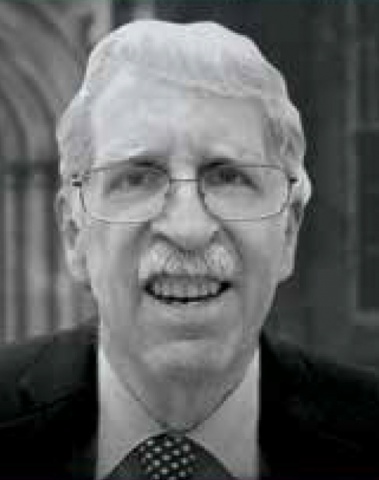Cohen came to the Ford School intending to work on anti-poverty programs. He credits the Ford School with connecting him with the right resources for his interests and career path.
Alan Cohen (MPP '75) has led an impressive career in social security policy, means-tested programs, and federal budget policy. Working for both the executive and legislative branches, Cohen has transformed aspects of social security, means-tested programs, and federal fiscal policy. But he has identified massive shortcomings within these programs and now dedicates his work as a senior fellow with the Center for American Progress to tackling these issues. Cohen said his independent study course at the Ford School set him on the path to work in the anti-poverty (means-tested programs) space.
Cohen is currently focused extensively on fixing the broken social security program’s administrative budgeting allocations system. In 1990, the federal government’s budget director kept social security’s administrative costs on-budget while the rest of the program went off-budget, leaving the administrative costs subject to competitive, budgetary caps. “Social security’s administrative costs are fighting with education programs, healthcare, the National Institute of Health, labor, and more for federal appropriations,” Cohen explains. “The result is that Social Security’s administrative costs have not gotten the amount of money they need each year to properly run the program. For example, the time to get an appeals hearing for disability benefits, on average, was one year and 8 months. Meanwhile, you are disabled, and you have no earnings. Some have even died before they get to the next stage of appeal,” says Cohen, “It has been a disaster.”
Cohen is working with a group of three former social security commissions in a bipartisan effort to permanently fix the system of funding Social Security’s administrative costs. “When properly implemented, Social Security is an anti-poverty program. Social security is the biggest anti-poverty program in the country,” he said.
Cohen entered this space after exploring economics and anti-poverty courses while at the Ford School. “The great thing about the Ford School is that they offer a lot of flexibility in what you can take,” said Cohen. “In my second year I was able to take a lot of economics as well as an anti-poverty course, and I loved them.” Cohen worked as a Social Security and income security analyst for the Democratic staff of the Senate Budget Committee from 1983 through 1991; senior advisor to the Secretary of the Treasury for Budget and Economics from 1993 to 2001, and he served as the senior budget advisor and chief counselor for social security for the U.S. Senate Committee on Finance from 2001 to 2012. In 2014 he was nominated by President Obama and confirmed by the Senate to a two-year position on the seven-member federal Social Security Advisory Board. Cohen explained that a public policy degree is vital to advancing your career in this arena. “I think you're significantly further ahead of the game if you have one.” Reflecting on his experience, Cohen concluded, “I came to the Ford School with the goal of working on anti-poverty programs. And that’s what I did when I left grad school. The Ford School helped put me on a great career path.”
